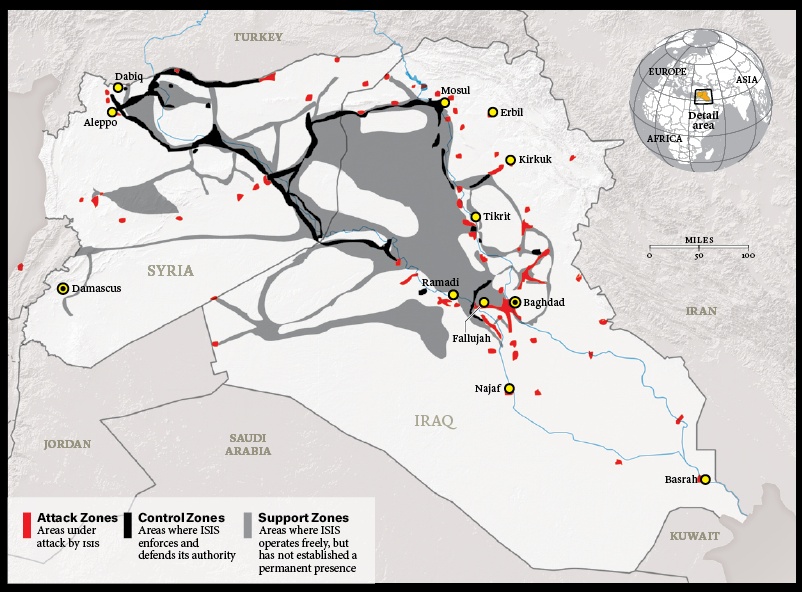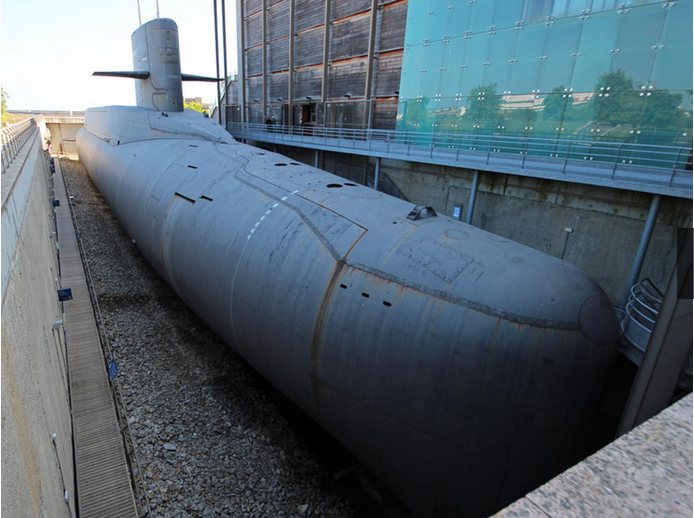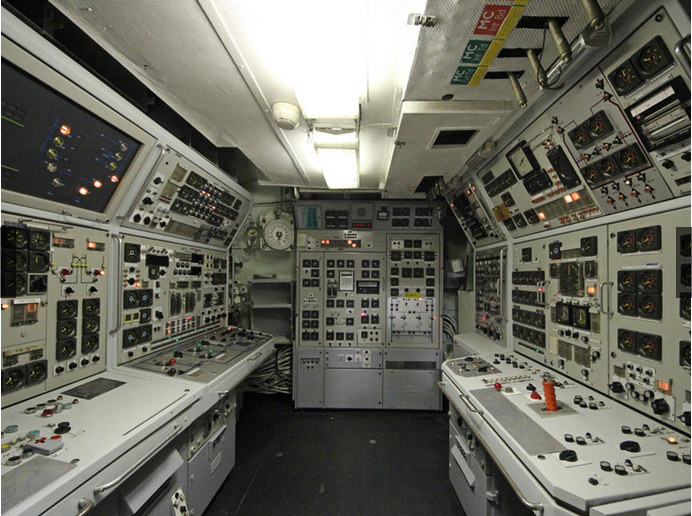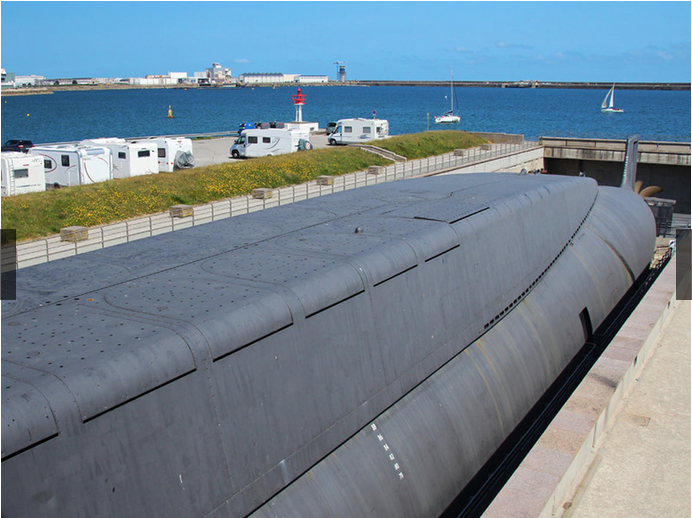Published on 16 Feb 2015
Vice Admiral Maximilian Reichsgraf von Spee is one of the most famous admirals of World War One. When the war broke out, he and his East Asian Squadron are stationed in the Pacific. But instead of surrendering to his superior enemies, he manages to reach South America during an audacious cruiser war. At the Battle of Coronel, he ends the legend of the invincible Royal Navy.
February 18, 2015
Maximilian von Spee I WHO DID WHAT IN WW1?
A thumbnail sketch of ISIS
In The Atlantic, Graeme Wood discusses what the Islamic State is and where it came from so recently:
The group seized Mosul, Iraq, last June, and already rules an area larger than the United Kingdom. Abu Bakr al-Baghdadi has been its leader since May 2010, but until last summer, his most recent known appearance on film was a grainy mug shot from a stay in U.S. captivity at Camp Bucca during the occupation of Iraq. Then, on July 5 of last year, he stepped into the pulpit of the Great Mosque of al-Nuri in Mosul, to deliver a Ramadan sermon as the first caliph in generations — upgrading his resolution from grainy to high-definition, and his position from hunted guerrilla to commander of all Muslims. The inflow of jihadists that followed, from around the world, was unprecedented in its pace and volume, and is continuing.
Our ignorance of the Islamic State is in some ways understandable: It is a hermit kingdom; few have gone there and returned. Baghdadi has spoken on camera only once. But his address, and the Islamic State’s countless other propaganda videos and encyclicals, are online, and the caliphate’s supporters have toiled mightily to make their project knowable. We can gather that their state rejects peace as a matter of principle; that it hungers for genocide; that its religious views make it constitutionally incapable of certain types of change, even if that change might ensure its survival; and that it considers itself a harbinger of — and headline player in — the imminent end of the world.
The Islamic State, also known as the Islamic State of Iraq and al-Sham (ISIS), follows a distinctive variety of Islam whose beliefs about the path to the Day of Judgment matter to its strategy, and can help the West know its enemy and predict its behavior. Its rise to power is less like the triumph of the Muslim Brotherhood in Egypt (a group whose leaders the Islamic State considers apostates) than like the realization of a dystopian alternate reality in which David Koresh or Jim Jones survived to wield absolute power over not just a few hundred people, but some 8 million.
We have misunderstood the nature of the Islamic State in at least two ways. First, we tend to see jihadism as monolithic, and to apply the logic of al‑Qaeda to an organization that has decisively eclipsed it. The Islamic State supporters I spoke with still refer to Osama bin Laden as “Sheikh Osama,” a title of honor. But jihadism has evolved since al-Qaeda’s heyday, from about 1998 to 2003, and many jihadists disdain the group’s priorities and current leadership.
Bin Laden viewed his terrorism as a prologue to a caliphate he did not expect to see in his lifetime. His organization was flexible, operating as a geographically diffuse network of autonomous cells. The Islamic State, by contrast, requires territory to remain legitimate, and a top-down structure to rule it. (Its bureaucracy is divided into civil and military arms, and its territory into provinces.)

Control of territory is an essential precondition for the Islamic State’s authority in the eyes of its supporters. This map, adapted from the work of the Institute for the Study of War, shows the territory under the caliphate’s control as of January 15, along with areas it has attacked. Where it holds power, the state collects taxes, regulates prices, operates courts, and administers services ranging from health care and education to telecommunications.
A tour of the French ballistic missile submarine Le Redoutable
Gerard Vanderleun posted a link to this set of photos of the retired French submarine Le Redoutable:
Fascinating and worthwhile for the blend of megadeath and French lifestyles: A tour of the ballistic missile submarine Redoutable (photos) the largest submarine you can tour without security clearance, and one of the only ballistic missile subs fully accessible to the general public. The French nuclear submarine Redoutable spent the ’70s and ’80s at sea and was home to 135 sailors for months at a time. The missile boat-turned-museum resides in the French seaside town of Cherbourg after extensive refurbishment.

It’s pretty much impossible to get a full shot of the sub, given where it rests. Let’s just say, it’s big.

Man, this looks like a nuclear power station control room.
Oh, wait, it is. Along with all the other moving and dangerous parts of the “drivetrain.”

The 16 missile hatches, with the lovely Cherbourg harbor in the background.
Listen to the lawyer, gentlemen, and don’t get involved in a BDSM relationship
At The Federalist, Leslie Loftis provides a bit of friendly (lawyerly) advice to men in the wake of the Fifty Shades of Grey bandwagon:
The Fifty Shades of Grey hype has started its saturation run-up to the movie release this week. I expected the music video releases, the Super Bowl commercials. I did not expect the branding promotions.
I am a lawyer. Ever since their first year of law school, lawyers see liability. And in this bondage-for-amateurs fandom that is 50SOG (hat tip to Tracinski for the abbreviation) liability lurks everywhere.
We live in an era of “yes means yes” and “always believe the woman.” Fun or not, consent or not, signed document or not — no man should ever engage in bondage sex behavior. The best of the law doesn’t allow contracts for bodily harm, no matter the parties’ intent. Some of the worst law throws out the constitutional standard of innocent until proven guilty. If a woman regrets and later reports consensual acts as rape and it comes down to her word against his, then he will lose.
In this legal environment, this sort of sex play is high-risk. So I was shocked to learn that mainstream chain Target was selling 50SOG-branded toys. I saw the 50SOG display and my mind immediately went to the McDonalds’ coffee-burn case. They are selling candles … for bedrooms … next to blindfolds. No potential problems here.
QotD: The Honourable East India Company
“John Company” — the Honourable East India Company, described by Macaulay as “the strangest of all governments … for the strangest of all empires”, was Britain’s presence in India, with its own armed forces, civil service, and judiciary, until after the Indian Mutiny of 1857, when it was replaced by direct rule of the Crown. Flashman’s definition of its boundaries in 1845 is roughly correct, and although at this period it controlled less than half of the sub-continent, his expression ‘lord of the land” is well chosen: the Company was easily the strongest force in Asia, and at its height had a revenue greater than Britain’s and governed almost one-fifth of the world’s population. (See The East India Company by Brian Gardner (1971).)
George MacDonald Fraser, Flashman and the Mountain of Light, 1990.



